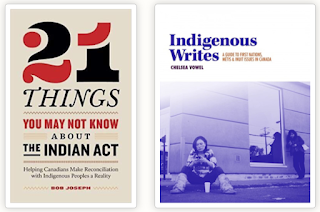Our team created a list of resources to share with teachers in our buildings. We curated websites, found photos/videos to use as provocations, and found virtual and hard copies of picture books. Click here to access the PDF with links and information we shared with our teachers for Orange Shirt Day 2018.
Picture Books
These are some of the books that were read to students throughout our schools. Chantima and Jen teach primary grades and used these books to help their student's understand the impact residential schools had on indigenous children and their families.
When I Was Eight by
Not My Girl by
Stolen Words by Melanie Florence
Shi-Shi-Etko by Nicola Campbell
Shin-Chi's Canoe by Nicola Campbell
One of the challenges of reading picture books in a large school is having enough copies for everyone! We included some YouTube links to picture books in our resources list, but some of them were not quite what we were looking for. We would love to have some of these books read by local indigenous community members. Stay tuned!
We did find some of the books on TumbleBooks and the app epic! If you use app epic! in your classroom, there is a small selection of books you can share with your students and you should check them out! We created a collection for Orange Shirt Day and shared it with our staffs.
Orange Shirt Day Video
Our school board shares an announcement about Orange Shirt Day that can be shared in schools. Since our school has video announcements, we created a video using images from OrangeShirtDay.org. This video was an effective way to share Phyllis Webstad's story and the origins of Orange Shirt Day with everyone in our school community.



